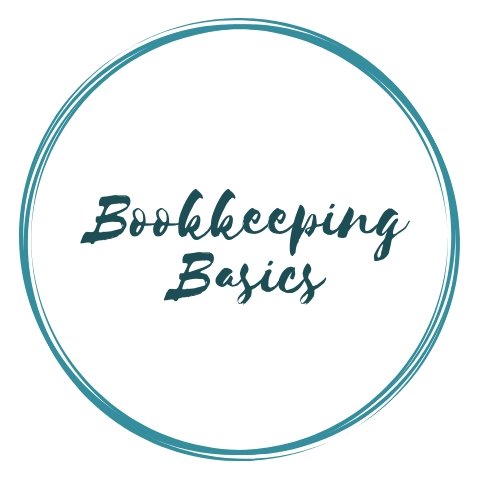- Home
- Bookkeeping Articles
- Revenue Rules Bookkeeping Company
Revenue Rules Bookkeeping Company
Reason To Hire Bookkeepers
Revenue Rules Bookkeeping Company: The Financial Accounting Standards Board (FASB) has introduced a series of new revenue reporting rules which already went into effect. The International Accounting Standards Board (IASB) will establish parallel practices for companies operating in Europe and many other countries. Every publicly traded company was affected by the new rules.
Private businesses will also need to be prepared for the new changes. These businesses should hire a bookkeeping company that is familiar with the new rules to ensure compliance. They should also ask questions to make more informed bookkeeping decisions on their end.
Revenue Rules Bookkeeping Company
Reading revenue reports has become increasingly difficult in the changing global economy. Since a growing number of companies have a multi-national presence, industry regulators recognized a need to create a more uniform framework across jurisdictions. The FASB and IASB have converged to create a universal standard for companies across the world.
The new requirements won’t be implemented for another two years, but proactive companies are already becoming acclimated with them. They recognize that the new policies are rather complex and may not want to take the time to learn them on their own. These companies will probably opt to hire a bookkeeping company instead of relearning the revenue reporting standards.
Accounting Revenue Rules
Revenue reporting rules, also known as revenue recognition rules or revenue accounting standards, are guidelines that govern how companies recognize, measure, and report revenue in their financial statements. These rules ensure consistency and transparency in financial reporting, allowing stakeholders to assess a company's financial performance accurately. The following are key aspects of revenue reporting rules:
- Revenue Recognition Principles: Revenue recognition principles establish when and how revenue should be recognized. The two primary frameworks used are the International Financial Reporting Standards (IFRS) and the Generally Accepted Accounting Principles (GAAP). These frameworks provide general guidelines and specific criteria for recognizing revenue from different types of transactions, such as the transfer of goods or services to customers.
- Criteria for Revenue Recognition: Revenue is typically recognized when it is earned and realized or realizable. It should also be measurable with reasonable certainty. The criteria often include: Identification of the contract with the customer: A valid contract exists between the company and the customer, outlining the terms and conditions of the transaction. Identification of performance obligations: The company identifies the distinct goods or services it has promised to provide to the customer. Determination of transaction price: The company determines the amount of consideration it expects to receive from the customer in exchange for the goods or services .Allocation of transaction price: If the contract includes multiple performance obligations, the company allocates the transaction price to each obligation based on its relative standalone selling price. Satisfaction of performance obligations: The company recognizes revenue when it satisfies each performance obligation by transferring control of the promised goods or services to the customer.
- Timing of Revenue Recognition: Revenue can be recognized at a point in time or over time. Point-in-time recognition occurs when control of the goods or services transfers to the customer at a specific point, such as upon delivery. Over time recognition occurs when control transfers over time, based on factors like the passage of time, the customer's simultaneous receipt and consumption of the benefits, or the company's performance to enhance or create an asset that the customer controls.
- Disclosures: Revenue reporting rules require companies to provide relevant disclosures in their financial statements to enhance transparency. These disclosures include information about the nature, timing, and uncertainty of revenue and cash flows arising from contracts with customers. Companies may also need to disclose information about contract balances, performance obligations, significant judgments, and estimates applied in revenue recognition.
- Changes in Revenue Recognition Standards: Companies must stay informed about changes in revenue recognition standards. For instance, the introduction of ASC 606 in the United States and IFRS 15 internationally brought significant changes to revenue recognition guidelines. Companies may need to update their accounting policies, systems, and processes to ensure compliance with the revised standards.
Adhering to revenue reporting rules is essential for accurate financial reporting, facilitating comparability across companies, industries, and jurisdictions. Revenue rules bookkeeping company should carefully analyze their contracts and apply the appropriate revenue recognition principles to ensure proper and consistent reporting of revenue in their financial statements. Compliance with revenue reporting rules helps stakeholders make informed decisions, evaluate performance, and assess the financial health of a company.
How Significant Are These Changes?
Industry experts across the world recognize that the changes will be significant for many companies. Dusty Stallings, a partner in PricewaterhouseCoopers told the New York Times that the changes had an impact on virtually every company.
The new guidelines included provisions allowing companies to report their revenues earlier than traditional U.S. GAAP and IFRS guidelines allowed. Since companies will be allowed to report their revenues earlier, they will need to rely more heavily on estimates than finalized records. However, they will also need to be much more diligent about support their estimates, which includes creating footnotes to specify their assumptions and work more closely with their bookkeeping company to formulate them.
FASB Chairman Russell Golden has indicated that the changes are more than a reformed approach to recordkeeping. “Because there is a greater need to estimate, there is a greater need to disclose.”
Golden said that there are a number of reasons that the rules have been revised. He pointed out that accounting practices often differed between industries, which often led to inconsistencies even among firms working with a disciplined bookkeeping company. Traditional GAAP practices also created significant problems for companies with elements in other jurisdictions and often gave them too much leeway to selectively report financial records.
Previous rules also often discouraged or even prohibited companies from following a standard practice even if they would have liked to. For example, revenue from software sales often had to be reported later than hardware, which created problems for companies that sold both.
Hans Hoogervorst, Chairman of the IASB, also feels that the new requirements are a significant improvement. However, while the new laws allow for a more consistent accounting and bookkeeping system, they can also lead to greater ambiguity. Arguably, the biggest challenge will be for firms to properly estimate outcomes. They will need to review contracts with customers and conduct probability analyses to determine expected outcomes, which will require them to study past financial records.
Speak With Your Bookkeeper or CPA About the New Rules
The new rules will create significant changes for companies that have extensively used the GAAP code. While they can get the hang of the new FASB revenue reporting standards over time, they should be cautious about trying to implement the new system on their own. Please feel free to contact us if you need a bookkeeping company to help you navigate the new requirements. We look forward to assisting you.
Please subscribe to my monthly newsletter, Bookkeeping Basics E-zine. It tells you every month about the new information that I have added, including some great tips and advice from myself and other Bookkeeping Basics readers.
Like Bookkeeping-Basics.net?
- Home
- Bookkeeping Articles
- Revenue Rules Bookkeeping Company

















New! Comments
Have your say about what you just read! Leave me a comment in the box below.